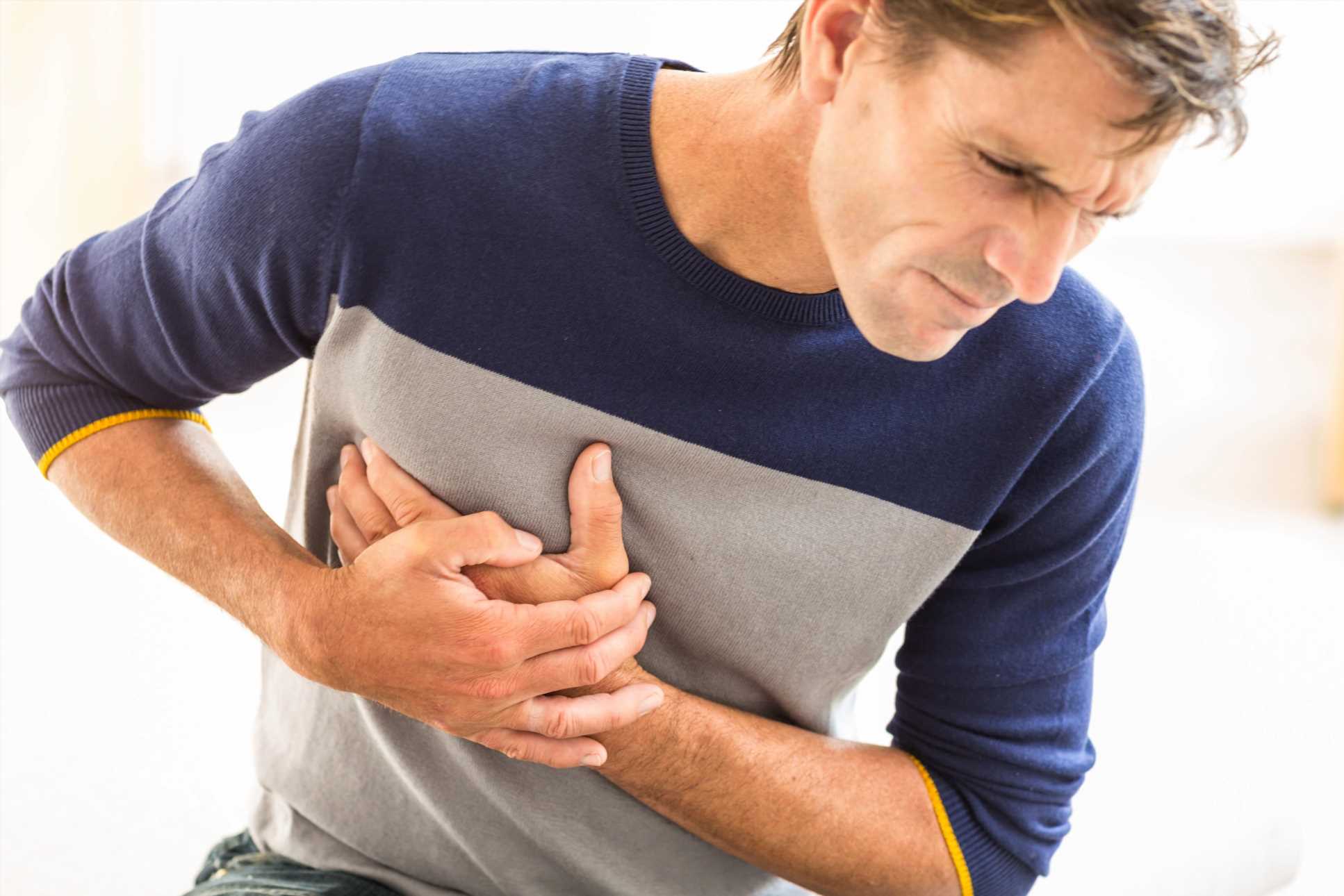A HEART attack and a cardiopulmonary, or cardiac, arrest are not the same things, although both can be deadly.
Heart issues, often not anticipated, can strike at any moment.
What is a cardiopulmonary arrest?
A cardiac arrest, also known as cardiopulmonary arrest, happens when your heart suddenly stops pumping blood around your body.
Someone who has had a cardiac arrest will collapse unconscious.
Their breathing will be irregular and may stop, and they will be unresponsive.
When a cardiac arrest happens there is no time to lose, it is a life-threatening emergency, and calling an ambulance is vital.
While waiting for an ambulance performing CPR can help keep a person alive.
To perform CPR:
- perform chest compression – pumping the heart from outside the body to keep blood flowing until the ambulance arrives
- rescue breathing – mouth-to-mouth resuscitation to inflate the lungs
What causes a cardiac arrest?
In the majority of cases, the killer condition is caused by an abnormal heart rhythm called ventricular fibrillation.
VF is an electrical fault, where the electrical activity of the heart gets so chaotic the heart stops pumping suddenly, and quivers instead.
VF can be caused by:
- coronary heart disease
- heart attack
- cardiomyopathy
- congenital heart disease
- heart valve disease
- acute myocarditis
Heart attacks can increase the risk for sudden cardiac arrest but most do not directly lead to one.
Can young people have heart attacks?
You can live an extremely healthy lifestyle and still have a heart attack, according to EEHealth.
Choosing not to smoke, being physically fit, and eating healthy lowers your risk for heart disease, but you can’t ignore your genes, cholesterol, and blood pressure.
Some inherit heart problems as a result of a family history of heart disease.
On June 12, 2021, Danish football player Christian Eriksen collapsed on the pitch in a Euro 2021 opener game against Finland.
It's currently unknown what prompted the random collapse, but the incident may or may not have been related to the player's heart.
Is a cardiac arrest always deadly?
It is possible to survive a cardiac arrest, but it is vital to get the right treatment quickly.
VF can be corrected by shocking the heart with a defibrillator, by a paramedic, doctor or member of the public if there is a community defibrillator nearby.
If not, performing CPR until a paramedic arrives is vital to keep blood flowing around the body, and to help the patient breathe.
What is a heart attack?
A heart attack is when one of the coronary arteries becomes blocked.
The heart muscle is then robbed of vital oxygenated blood, which if left untreated, can cause the heart muscle to begin to die.
A heart attack is a life-threatening emergency.
If you think someone is suffering one, it is important to dial 999 straight away.
What are the signs of a heart attack?
Heart attack symptoms can be difficult to spot for sure, because they can vary from person to person.
The most common signs include:
- chest pain, tightness, heaviness, pain or a burning feeling in your chest
- pain in the arms, neck, jaw, back or stomach
- for some people the pain and tightness will be severe, while for others it will just feel uncomfortable
- sweating
- feeling light-headed
- becoming short of breath
- feeling nauseous or vomiting
What causes a heart attack?
In most cases a heart attack will be triggered by coronary heart disease.
Coronary heart disease is where the coronary arteries, that supply the heart with oxygen-rich blood, become narrower.
This happens over time, as fatty materials build up in the blood vessel.
If a piece of the fatty material then breaks off, it can cause a blood clot.
When the clot is big enough to block the artery it can cut off the blood supply to the heart muscle.
This is a heart attack, which can also be referred to by it's medical names myocardial infarction, acute coronary syndrome or coronary thrombosis.
The NHS recently relaunched a tool that predicts when you will have a heart attack or stroke.
How is a heart attack diagnosed?
After dialling 999 for an ambulance, paramedics will perform a series of tests and examinations.
They will monitor your heart rate and blood pressure and perform an electrocardiogram (ECG).
You will be given pain relief if needed and oxygen if your levels have dropped.
Aspirin will often be prescribed, and where a heart attack is suspected you will be taken to hospital.
How is a heart attack treated?
The first port of call for treatment, is for doctors to treat the blocked artery.
There are two main procedures used to open up the blocked blood vessel.
The first, a primary percutaneous coronary intervention (PPCI) is an emergency coronary angioplasty.
It opens the blockage and helps restore blood supply to the heart.
The second treatment, is thrombosis, also known as a "clot buster".
It involves injecting a drug into the vein to dissolve the blood clot and restore blood supply to the heart that way.
In some cases this procedure can be performed in the ambulance.
While these treatments are common, in some cases they will not be right for the patient and so won't be performed.
Can I prevent a heart attack?
The most important thing a person can do to ward off a heart attack is to life a healthy lifestyle.
Quitting smoking is the single best thing you can do to boost your heart health.
Smokers are twice as likely to die from a heart attack, compared to non-smokers.
Stubbing out the habit will slash the risk of heart attack but also stroke, and a number of cancers.
As well as quitting smoking, regular exercise, a healthy diet and limiting alcohol can also reduce your heart attack risk.
Source: Read Full Article





